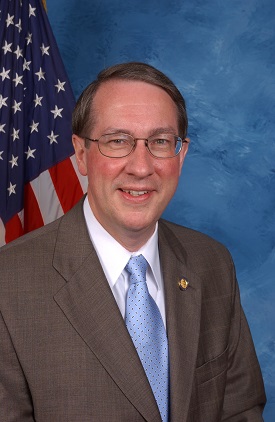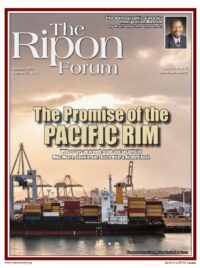
An artificial market with a very real impact – that’s the result of the federal government’s subsidization of the ethanol industry under the Renewable Fuel Standard (RFS). It may be a boon for the ethanol industry, but for everyone else it is a completely unworkable and costly policy.
The RFS requires that 36 billion gallons of renewable fuels be in our nation’s fuel supply by 2022. Currently, this mandate is almost entirely fulfilled by corn ethanol. In fact, in 2012 more than 40 percent of the nation’s corn crop was used for ethanol production.
A policy that started with good intentions has resulted in a slew of unintended consequences. One of the greatest unintended consequences of the ethanol mandate is the steep increase in the price of corn partially due to increased food and feed stocks being diverted to ethanol production. To put it into perspective, in 2005 corn prices were around $2/bushel. In 2013, prices have been as high as $7/bushel; however, last summer we saw prices exceed $8/bushel. This steep increase can have a significant impact on those who purchase this commodity. As the ethanol mandate pushes more farmers to reallocate more land to corn production and away from other crop production, we have also seen the prices for other agricultural commodities rise.
A policy that started with good intentions has resulted in a slew of unintended consequences.
Simply put, the RFS has driven up ethanol production at the expense of food and feed uses, passing these higher costs directly down the chain. For many farmers and businesses, rapid increases in the price of corn weigh heavily on their bottom line, making it difficult to stay in business. But it doesn’t stop there – higher corn prices are ultimately reflected in the price of food and other goods on grocery store shelves.
The RFS also impacts the fuel in your gas tank. The mandate has now pushed the United States up against the “blend wall.” This wall is the point where we are producing more ethanol than necessary to generate E-10 gasoline, which is the highest level of ethanol in gasoline that the entire motor vehicle fleet can safely utilize. As the RFS pushes the amount of fuel required to be blended into our nation’s gasoline higher, the fuel industry will likely have to produce a higher blend, like E-15, which cannot be used in all motor vehicles, or failure to blend the mandated volume results in fines, forcing companies to absorb the substantial costs, which would impact fuel prices. Some reports have found that the use of higher ethanol blends in gasoline, like E15, has resulted in engine damage and even failure.
The RFS debate is no longer just a debate about fuel or food. As we see the costs of this mandate continue to rise, it has also become a debate about jobs, small business, and economic growth. Quite frankly, the RFS has created a domino effect that hurts livestock and food producers, businesses, and, ultimately, consumers. Under the RFS, the federal government is essentially telling private industry that they must buy one product, ignoring other groups who also depend on that product and creating an artificial supply-and-demand.
The RFS is clearly unworkable. The mandate drastically manipulates the corn marketplace and increases commodity and food costs across the supply chain. To force ethanol to compete in the free market, I introduced the Renewable Fuel Standard Elimination Act (H.R. 1461). The RFS Elimination Act will do just that – eliminate the ethanol mandate and help ensure that we have enough corn supplies to meet all of our demands. Ethanol would have to compete fairly, instead of being propelled by a government mandate.
The RFS is clearly unworkable. The mandate drastically manipulates the corn marketplace and increases commodity and food costs across the supply chain.
The significant support surrounding the RFS Elimination Act is evidence that there is growing momentum to move away from the RFS. Thus far, nearly 50 bipartisan members of the House have signed on as cosponsors. The backing from groups outside of the House has grown as well.
Renewable fuels have a place in America’s energy policy. Our nation should be looking at alternatives that will help to ease our dependency on fossil fuels. However, these fuels should compete fairly in the marketplace, free from the distortion and government interference that the current ethanol mandate forces.
The RFS is an example of the federal government disrupting the marketplace by putting its heavy thumb on one side of the scale – tipping it in favor of one side over the other. In the debate over ethanol, the government is picking winners and losers. Every cattle producer who faces higher feed costs, every family who shops in a grocery store or dines at a restaurant, and every motorist who fills up their tank at the gas station pays the price of this unworkable policy.
It is evident that Congress must fix this broken ethanol policy and restore free market principles.
Bob Goodlatte represents the 6th District of Virginia in the U.S. House of Representatives. He is a member of the Agriculture Committee, and serves as Chairman of the Judiciary Committee.




